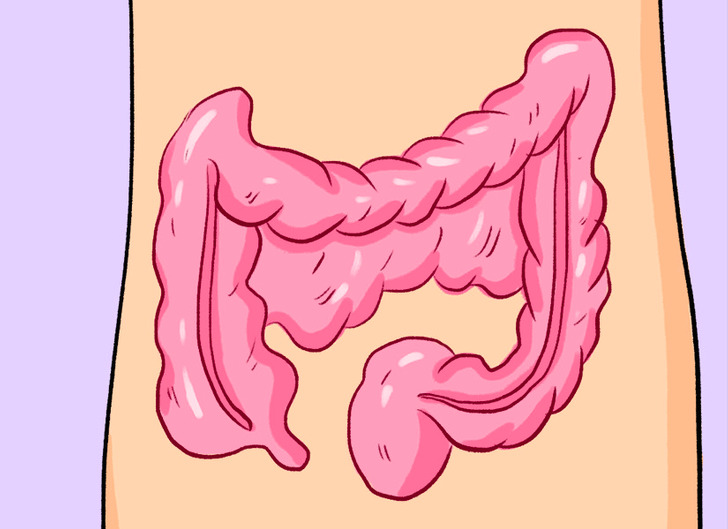Meg Ryan Makes a Rare Appearance at Met Gala After 20 Years and Looks Unrecognizable


Your colon plays a crucial role in digestion and overall health, but problems can develop silently before noticeable symptoms appear. Ignoring potential warning signs can lead to serious complications, including conditions like inflammatory bowel disease or even colorectal cancer. That’s why it's important to stay alert to changes in your body that might indicate something is wrong. Here are five key warning signs that could signal an issue with your colon—and why you should take them seriously.
CONTENT IS PROVIDED FOR INFORMATIONAL PURPOSES ONLY AND IS NOT INTENDED AS A SUBSTITUTE OF MEDICAL ADVICE.
SEEK GUIDANCE OF YOUR DOCTOR REGARDING YOUR HEALTH AND MEDICAL CONDITIONS.
TikToker @radwah.oda, Radwah Oda, recently shared her shocking colon cancer diagnosis in a viral video, hoping to raise awareness about symptoms she initially dismissed. She urged viewers to pay attention to their bodies and seek medical advice if something feels off. “If you have any of these symptoms, please don’t be concerned, but go see a doctor. Advocate for yourself,” she emphasized.
While colon cancer is more common in older adults, it can develop at any age, and symptoms often go unnoticed until the disease has progressed. Recognizing subtle warning signs early can make a significant difference in treatment outcomes.


One of the lesser-known signs of colon cancer is a noticeable change in stool shape. While occasional narrow stools are usually harmless, persistently thin or pencil-like stools could indicate a narrowing of the colon due to a tumor or obstruction.
This change happens when something restricts the normal passage of waste, making it difficult for stool to pass through as usual. If you frequently notice thin stools, it’s important to consult a doctor to rule out any serious underlying conditions.

Frequent trips to the bathroom might not always be a sign of a problem, but a sudden increase in bowel movements—especially if paired with changes in consistency or urgency—could be a red flag.
Some people with colon cancer experience diarrhea, while others have the constant urge to go but struggle to pass stool. These changes happen when a tumor disrupts normal bowel function. If you’re experiencing persistent shifts in your bathroom habits without a clear cause, it’s worth getting checked by a medical professional.

Radwah Oda explained that one of the first symptoms she ignored was a pain on the lower right side of her body, just beneath her breast. Assuming her bra was too tight, she dismissed the discomfort for months, not realizing it could be a warning sign.
A tumor in the colon can lead to an obstruction, blocking the passage of stool and causing severe pain, often concentrated on the lower left side of the abdomen. If you notice ongoing pain or changes in bowel habits, it's crucial to seek medical attention rather than dismissing the symptoms.

Feeling drained all the time, even after a full night’s rest, could be more than just everyday exhaustion. This type of tiredness doesn’t go away with rest and often comes with dizziness or shortness of breath. If you find yourself struggling with constant fatigue without an obvious reason, it’s crucial to consider possible underlying health issues, including colon-related conditions.
Persistent bloating isn’t just a digestive inconvenience—it can be a symptom of something more serious. Colon cancer can cause blockages in the intestines, leading to gas buildup, swelling, and discomfort.
Many people dismiss bloating as a minor issue, but if it becomes frequent, painful, or doesn’t improve with diet changes, it’s worth discussing with a doctor. In some cases, bloating can indicate that a tumor is interfering with normal digestive processes, making early detection vital.
Belly fat is one of the most stubborn areas to target when losing weight, but the right combination of exercises and lifestyle changes can make all the difference.











